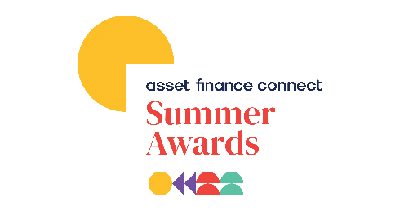
In our latest Leader's Interview, Mark Nelson, Director at Compass Business Finance spoke to Asset Finance Connect about Compass’ plans for growth in 2024 and beyond with their three-way hybrid lender-broker model; their invaluable human relationship with customers and partners, complemented by technology to enhance the customer relationship; and how economic uncertainty and volatility can bring opportunities to the market.
Key takeaways:
- Business levels good as banks lend less
- Key to business is personal – tech comes second
- Three-way hybrid model – own book, own sales force and close working relationship with brokers
Well respected in the industry, Compass Business Finance has an enviable 18-year record as a trusted lender. At the heart of their business has been a focus on steady and incremental growth while building strong relationships with SME clients and with the brokers and funders they deal with.
Human relationships vs technology
Compass believe the time and money invested in relationships pays dividend in the long term as it is the essence of where they are today. But technological advances cannot be ignored in this industry, or you risk being left behind.
Getting the right mix is essential for Compass who utilise technology to enhance the relationship they have with their customers. Mark Nelson commented, “We will always believe that having that human touch to the end customer and to our partners is invaluable and you need to make sure you work hard on that, however, you can’t ignore technology and the improvements it makes for the customer process.”
In 2022, Compass undertook a large-scale technology implementation to enhance their day-to-day processes and create a straightforward easy flow for the customer. The successful technology application put Compass on a growth trajectory without having to change the ethos of the company or how they deal with the customer.
Nelson sees technology playing a greater role going forward. And while there will be a portion of society who want to engage further with technology, there will always be some who want to stick to face-to-face interaction, which is a challenge that Compass need to fully understand: “In the medium term, Compass will continue to have that front facing interaction because we feel that's where we differentiate ourselves because we understand our customers, what they do and where they want to go,” confirmed Mark Nelson.
“But you can't get away from the fact that technology is going to keep coming. And if you don't embrace it, you could open yourself up to risk in the market as well.”
Broker-lender technology
Compass are keen to understand all new technological systems entering the market to help standardise the broker-lender journey and see how technology can change the market and make a difference to the customer.
With strong views on portals, Mark Nelson does not see the benefits for the customer: “Portals are not necessarily the right tool in the market for the customer because you'll have a number of brokers who won't want to go through the energy of putting things onto a portal.”
Brokers are strong in the current asset finance market and forcing them on a portal experience could be detrimental to everyone involved, according to Nelson: “Ultimately brokers have the relationship with the customer, and you need to engage them on a level whereby you make that process straightforward.”
Having a centralised system where you can input or more importantly integrate an API makes sense to Nelson in terms of improving the customer experience by giving the broker more lending options. But the concern in the market arises around the cost of the system. With finance companies currently paying a fee for the system, the worry is how much the cost will go up in the future once the system has been fully implemented. And companies that have spent a lot of money building a portal will not want to move away from their own system.
The market
As we enter 2024, the market remains volatile, with a significant portion struggling due to high interest rates and rising energy costs. The uncertainty in the economy is hitting turnover revenue with many SMEs worried about making monthly payments. The slight increase in arrears is also a concerning reminder of the current economic climate.
However, on the flip side, Compass are pleased to report that they are exceptionally busy with end customers as they enter the new year and surprisingly not just with cashflow exercises, but also with purchase finance. This is a positive sign that investment is still active despite the economic downturn.
With lead funders such as Lombard and Lloyds tweaking their credit appetite somewhat due to the influx of arrears, Nelson notes that they are seeing a filter-down effect to other alternative lenders. He points out that this behaviour is often seen, irrespective of the credit appetite, when you are in a volatile market with fluctuating interest rates, when SMEs shop around for the best deal.
2024 will bring more uncertain times for the economy and asset finance market, according to Nelson but on a positive note this uncertainty feeds opportunity. While investment levels will hold or drop, from a Compass perspective they still predict reasonable demand and growth.
Over the coming months, Compass Business Finance will continue to focus on the core markets that they know and understand – print, engineering and construction plus renewable energy, which has seen growth over the last 12 months due to rising energy bills.
Within their markets, an obvious push to sustainability has been noted with a focus on efficiency and going green from their clients.
While there is a natural inclination to focus on more sustainable assets, cost will prevail which unfortunately will not be in favour of the greener asset. However, Nelson notes that at Compass they are starting to see their customers looking at the entire cost of ownership, factoring in energy cost and looking at the asset cost over a three-to-five-year period.
Hybrid broker-lender model
The three-way hybrid broker-lender model adopted by Compass – take broker business in, have a direct sales force, and broke business out – seems a very desirable place to be in the current market and has held them in good stead over the past 18 years.
Nelson highlights that Compass are “small enough to adopt the model and big enough now to make an impact.”
“We like the way we can service our customer base by operating from that model,” according to Mark Nelson. “And we have some very, very good funder relationships through that model as well.”
In 2024, Compass is looking to slowly and tentatively increase the number of brokers that broke into them. Head of Credit, Ken Archbold, has been selecting a handful of brokers who Compass would like to start working with and partner in creating an offering to market that's in keeping with Compass’ specialist and relational ethos. Once the strategy and support are more firmly in place, Compass will look at broadening this out, as a slow and steady process.
Nelson acknowledges that, “We see the model giving us growth over the next three to five years.”
The broker-in model will not replace Compass’ direct sales team but will complement it in a different area: “In comparison to having a direct sales force, adding the broker-in model for Compass is very much a case of having a bit of both.”
Compass is very clear that their direct sales force and broker business are very separate. Nelson notes that, “If a broker brings us a customer that we don't know about, it goes into a system where it can't be accessed from the rest of the sales team. That is that broker’s customer. We've operated as a broker, and we still do, and there's nothing worse than introducing a customer to a lender and them knocking on their door themselves.”
Nelson believes that while regulation is a necessity in the market and they would prefer brokers to be FCA credited, Compass see training and education for brokers as vastly more important than regulation as the broker is essentially representing the lender to the customer, so need to be careful and protect Compass’ own integrity.
Regulation
Recent and proposed changes to regulation are threatening to make it harder to serve the SME market. For example, Basel 3.1 is likely to increase the cost of capital used to lend to SMEs; the FSB has launched a super-complaint to highlight the use of personal guarantees for SME owners which might make it harder for asset finance lenders to get personal guarantees without being regulated; and the FCA’s recent launch of a review of historical motor finance commission arrangements and sales across several firms following a high number of complaints from customers to motor finance firms claiming compensation for commission arrangements.
Regulation is a huge problem for the industry, according to Mark Nelson, and is leaving very little options for a funder to differentiate themselves or a customer to negotiate a transaction, which Nelson believes is not healthy for the market, the customer, the finance company, or the broker.
Having only a handful of funders left in the regulated space, who are dictating the rate, is not contributing to a competitive environment, according to Nelson, which in turn is not supporting the customer: “Regulation is implemented for the benefit of the customer but sometimes it is to their detriment.”
As a result of increasing regulation and ensuing cost, more and more companies are leaving the regulated space and simply doing unregulated business, like Compass who is staying clear of regulated business.
Nelson believes that the Finance & Leasing Association (FLA) has not been listened to on the impact Basel 3.1 will have on the industry and SMEs and, unless someone listens, it will be disastrous for everyone involved.
What does the future hold for Compass Business Finance?
Compass is actively looking for growth in 2024, and a big part of that journey is investing in their people. Nelson noted that, “Having the right people in place, looking after and developing them, equates to a great working environment and, most importantly, enables us to provide the best possible level of service and care to our customers.”
Compass is always open to adding good people to their team who are the right fit for the business as they continue on their growth trajectory: “It’s an exciting time for us at Compass Business Finance,” commented Mark Nelson.






